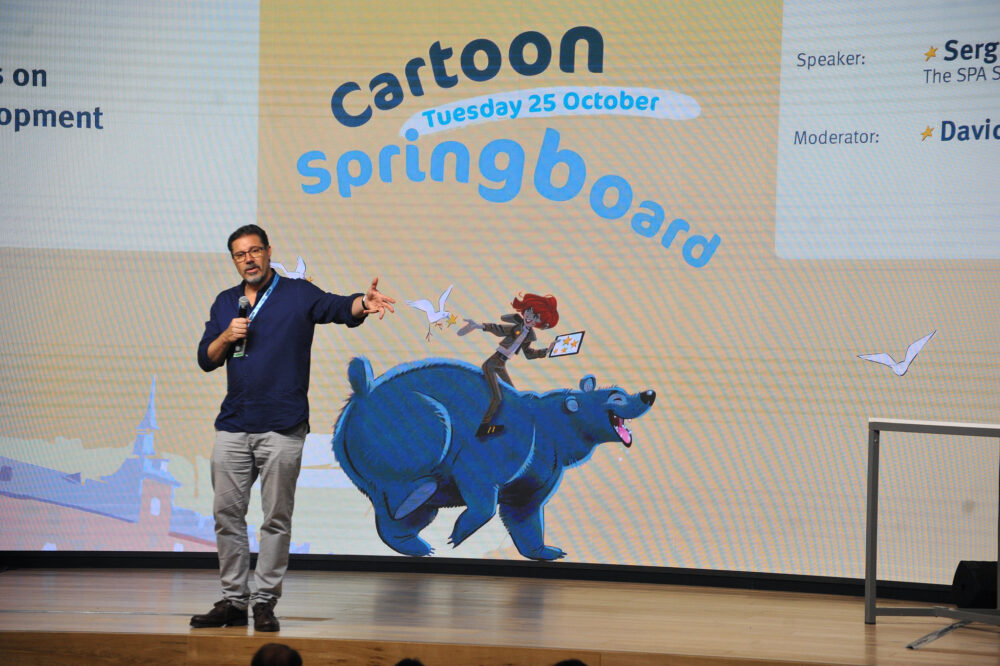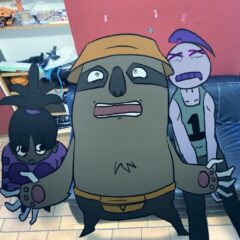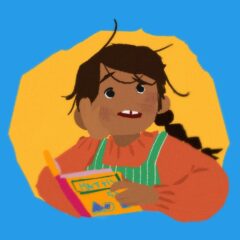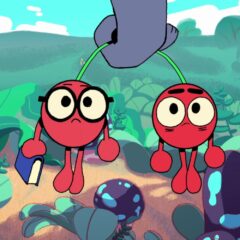The eighth edition of Cartoon Springboard welcoming young animation talents from across Europe to Madrid, Spain from October 25-27, to present their next-gen projects and offer attendees a vision of the themes, artistic styles and preferred formats the industry can expect in the near future.
Cartoon Springboard’s first Madrid event was organized as ever by European animation org CARTOON.
Spanish animator, screenwriter, producer, and director Sergio Pablos (Klaus, The SPA Studios) opened the event with an inspiring master class on story development for the 170-some participants from 24 countries present at this event, supported by Creative Europe – MEDIA, the Region of Madrid, Madrid City Council, Madrid Film Office and ICEX Spain Trade and Investments.
Featuring professionals from 13 countries, the conferences held at the event explored the latest trends and challenges facing European animation. In addition to Pablos, guest speakers included Telidja Klaï (Belgium public children’s channel Ketnet-VRT), who talked about the definition of target audiences; Daniella Gallegos (Tribes Media – Glitch, Netherlands), who reflected on the role of VoD services; and Louis Jacobée (Gallimard Group, France), who delved into the relationship between the publishing and animation industries.

Developed by students or recently graduated screenwriters, directors or producers from animation schools based in Belgium, Croatia, Czech Republic, Denmark, France, Germany, Hungary, Ireland, Italy, the Netherlands, Slovakia, and Spain, the projects were pitched in front of a panel of 26 experts in order to ensure their creative and financial strengthening.
With six projects, Spanish animation led the line-up followed by France (four), Czech Republic (three) and Denmark (two). Germany, Belgium, Croatia, Slovakia, Ireland, Italy, the Netherlands, and Sweden were present with one project each.
Comedy was king, expressed in a range of genres from the romantic to the absurdest and darkest twist on humor. Freely expressed approaches to current social challenges — such as inclusivity, diversity, immigration, environmental issues and ecological anxiety — also stood out amid the 23 selected projects.
Format-wise, TV series topped the list with 15 works, while web series continued to gain ground with six projects, confirming their importance as a memorable introduction for new talents to the global industry. The selection also included two feature films and one TV Special.
In terms of target audience, animation aimed at Young Adult/Adult audiences accounted for almost half of the selection (46%). The rest was divided between projects for children 5-11 with 34%, and for family audiences with 12%, while projects for preschoolers and teenagers represented 4% each.
Topics & Trends for 2022

Positive vibes. More than half of the projects were listed under “Comedy,” 14 in total, and 13 projects were defined as “Adventure,” expressing the next generation’s eagerness to pursue a positive approach in animation. Popular projects included Apocalypse Mojito (Animation Sans Frontière), Beanboy (The Animation Workshop), Happily Never After (Tomas Bata University), KAHIBO (Filmakademie Baden-Württemberg), Missing Pieces (La Salle Campus Barcelona – Universitat Ramón Llull) and Salty Bananas (Academy of Fine Arts, Croatia).

Contemporary challenges. Sustainability is touched upon in multiple projects — the future of our planet is in question, and the answer is sometimes absurd or extreme, like in Garbage (FAMO, Czech Republic) or The Last Drop (Universidad Politécnica de Valencia). Diversity has also emerged as a major concern, with projects touching on racism, LGBT issues and mental health at the forefront in Awa in the Desert(Universidad Pompeu Fabra) or For an Hour and a Half (EMCA, France).

Friends and family first. Symptomatic of our post-COVID times, solo main characters are giving way in favor of a core family or group of friends; a community supporting each of its members. Examples are Ajo West! (New Animation Sardinia), Dark Dark Woods (The Animation Workshop ), Eva and the World (Gobelins), Lil’ Wonders (Pulse College, Ireland), OTIS (Academy of Performing Arts - Film & Television Faculty), Phantasma (Lightbox Academy, Spain), Surkotés (HEAJ, Belgium) and The Red Cliff (Willem de Kooning Academie).
Women behind the camera. As for the creative teams supporting the projects presented on stage, Cartoon Springboard saw a strong show for women in animation: 42% of directors and 44% of project pitchers.

New business models and alliances. When young creators and producers team up, it’s for the best! Some even already have funded their creative studio, for the projects Eva and the World, Fridge & TV (U-tad, Spain) and The Cherry Brothers (Gobelins). Others relied on the support of their regional fund, like Ajo West! with NAS (New Animation Sardinia).
A strange world. Absurd humor and dystopia were topics of choice in Apocalypse Mojito, Fridge & TV, Happily Never After, Missing Pieces and Salty Banana.
Dialog-free. A few projects decided to go without any words, at least not from an understandable language; notably 9 Million Colors and Lazaro (La Poudrière, France).

Stunning visuals. Stop-motion, animation on live shots and ultra-colors featured in 9 Million Colors (FAMU, Czech Republic), For an Hour and a Half, Dark Dark Woods, Surkotés and The Cherry Brothers.
Telepathic sympathy. On several creators’ minds was the possibility of entering someone else’s, to read it and gain better understanding of emotions and feelings, such as in Beanboy, Eva & The World and Rille & Julia (Vancouver Film School).
Since Cartoon Springboard’s first edition in 2015, a total of 190 projects have been presented, nine of which have been released and another 60 are in active development. The event has been tagged as a first step before CARTOON’s co-production events for animated series (Cartoon Forum) and feature films (Cartoon Movie).
Cartoon Springboard will return to Madrid for its next edition, taking place October 24-26, 2023. Visit cartoon-media.eu for more information.














